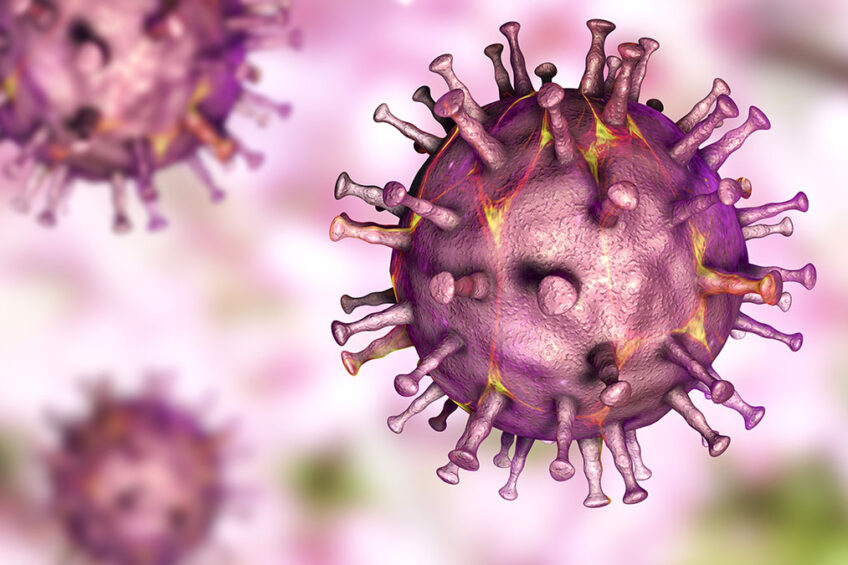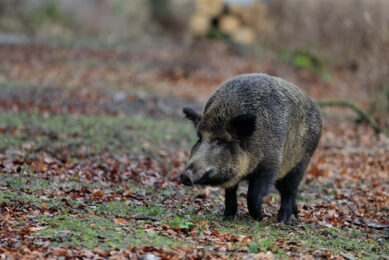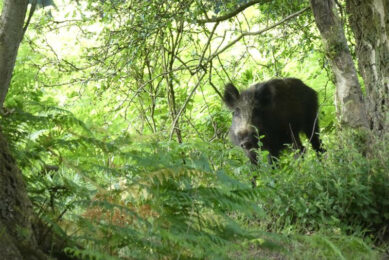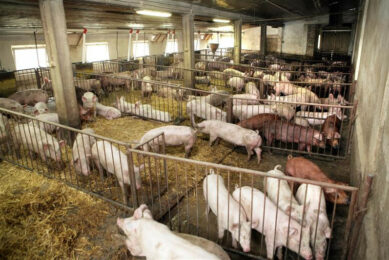ASF China: Genotype I also reported in China

The total picture of African Swine Fever in China has become more complex now Chinese scientists have also reported the emergence of ASF viruses of genotype I in the country, leading to chronic infections.
Genotype I was the strain that was around in Portugal and Spain for various decades in the 20th century and is currently endemic at the Italian island of Sardinia. Ever since ASF virus has made its (re-)entrance in Europe and Asia as from 2007, it was genotype II – a different and more virulent strain.
The scientists, attached to the Harbin Veterinary Research Institute, Chinese Academy for Agricultural Science (CAAS) in Harbin, concluded in their article in Emerging Microbes & Infections that the emergence of genotype I ASF viruses “will present more problems and challenges for the control and prevention of African Swine Fever in China.”
2 Different ASF viruses of genotype I
The scientists identified 2 viruses of genotype I in Shandong and Henan provinces.
ASF, genotype I, Henan province
The virus genotypes in Henan province were confirmed in samples from 4 dead finishing pigs. In that farm, finishers had developed chronic infection signs including weight loss, intermittent fever, skin ulcers, and arthritis; sporadic deaths were also observed. These were tested at the same laboratory for ASFv detection. This Henan virus was called HeN/ZZ-P1/21.
ASF, genotype I, Shandong province
The Shandong province genotype I virus was found on a farm in June 2021, when a finishing pig of 80kg showed paralytic symptoms. It was euthanised for autopsy and a lung sample was tested at the Chinese National ASF Para-reference Laboratory for ASFv detection. The Shandong virus was given the scientific name SD/DY-I/21.
Low virulence and chronic disease in pigs
The Shandong strain was found to combine low virulence with efficient transmissibility in pigs, causing “mild onset of infection and chronic disease.” The Shandong virus strain also was found to cause necrotic skin lesions and joint swelling.
The researchers wrote that phylogenetic analysis of the whole genome sequences suggested that both isolates share high similarity with 2 genotype I ASF viruses isolated in Portugal, isolated in 1968 and 1988.
New ASF genotype may also be present elsewhere in Asia
In a response, the US-based Swine Health Information Center made an assessment about the question how widespread the emerged genotype could be. The article, authored by Dr Dan Rock, University of Illinois, read, “Notably, pigs infected with these viruses could easily be missed early in a disease outbreak due to their reduced virulence. […] Given their reduced virulence and transmissibility characteristics, it is reasonable to assume these viruses also may be present in other regions of China and South East Asia.”
More research from Harbin Veterinary Research Institute: ASF mutations confirmed
Source of the ASF genotype I is still unclear
The source of these viruses and the nature of their introduction into China is unclear, Dr Rock wrote. “While they may represent a new introduction of virus from an African source, the striking degree of genetic similarity with […] 2 genotype I ASFVs isolated in Portugal in the 1960s suggest they may have originated from a European source – possibly imported legally or illegally to be evaluated as potential ASF vaccine candidates in China.”
That could complicate the protection that can be offered by a potential vaccine based on genotype II, Dr Rock said. “It is highly unlikely these vaccine candidates will provide protection against the viruses (genotype 1, serogroup 4) described here due to the lack of cross protection observed among heterologous ASFv strains.”
The research article, published in Emerging Microbes and Infections was done by Encheng Sun, Lianyu Huang, Xianfeng Zhang, Jiwen Zhang, Dongdong Shen, Zhenjiang Zhang, Zilong Wang, Hong Huo, Wenqing Wang, Haoyue Huangfu, Wan Wang, Fang Li, Renqiang Liu, Jianhong Sun, Zhijun Tian, Wei Xia, Yuntao Guan, Xijun He, Yuanmao Zhu, Dongming Zhao and Zhigao Bu, Harbin Veterinary Research Institute, Chinese Academy of Agricultural Sciences, Harbin, China.











